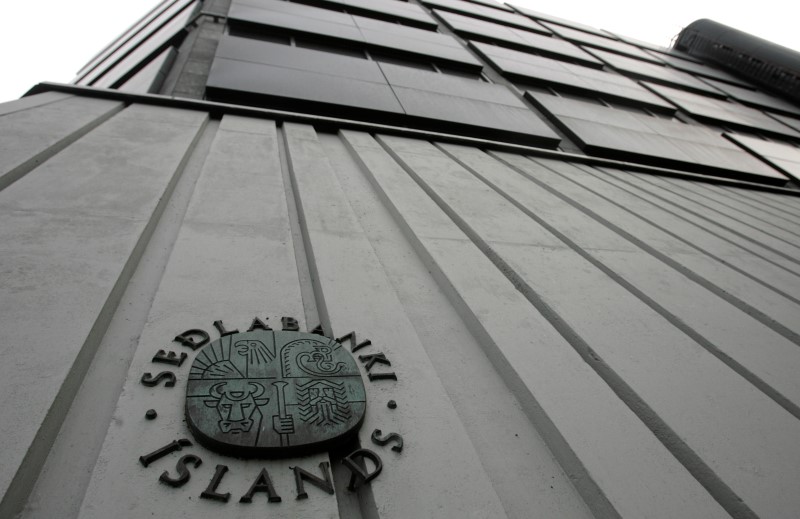Investing.com’s stocks of the week
COPENHAGEN (Reuters) - A month before a snap parliamentary election, Iceland's central bank cut on Wednesday its key interest for the fifth time in little more than a year in a move to offset the impact of lower inflation.
The central bank aims to maintain the inflation-adjusted interest rate steady, and as inflation fell sharply last month the bank is now reacting by lowering its key rate to 4.25 percent from 4.50 percent.
In September the country's consumer price index (CPI) rose 1.4 percent year-on-year down from an increase of 1.7 percent in August.
"Measures of underlying inflation are even lower, and falling," the central bank said in a statement.
"It does look like the central bank at the moment is just responding to changes in actual inflation," economist Stephen Brown from Capital Economics said.
He had thought that rate cuts were off the table for the time being following the collapse of the government last month and the upcoming snap election that may install a left-wing government, prone to a looser fiscal policy.
The central bank cut the rate in June for the fourth time in less than a year in response to a tourism boom that has strengthened the crown currency.
"The outlook is for GDP growth to be weaker this year than in 2016, in part because growth in tourism has eased," the central bank said on Wednesday.
It added that the rate of GDP growth will nevertheless remain "robust".
"There are signs that demand pressures in the economy have begun to subside," it said.
Iceland's prime minister Bjarni Benediktsson called a snap parliamentary election last month after one party in the ruling coalition quit the government formed less than nine months before.
